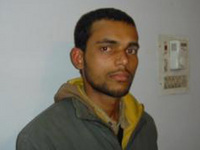Indian police said that a captured Lashkar-e-Taiba operative has provided additional details on the terror group’s operations inside India and Pakistan.
Sabauddin Ahmed, an Indian national who was captured earlier this year along with Fahim Ansari, have been involved with several attacks inside of India. Police believe Sabauddin and Ansari also were involved in scouting the locations for the November terror assault in Mumbai, which lasted for more than 60 hours and resulted in more than 170 people killed.
Both Sabauddin and Ansari trained at the same Lashkar-e-Taiba terror camps in Pakistan-occupied Kashmir as Ajmal Amir Kasab, the lone surviving terrorist captured during the Mumbai attack. Sabauddin admitted to meeting with Zaki-ur Rehman Lakhvi, Lashkar’s military commander, and Yusuf Muzammil, Lashkar’s senior operations commander.
Lakhvi and Muzammil are two of Indian’s most wanted terrorists. The Indian government demanded Pakistan turn over Lakhvi, Muzammil, and 18 other senior terrorists sheltering in Pakistan. The Pakistani government has refused to do so.
Police detained Sabauddin and Ansari ten months ago for their involvement in an attack on a police camp in Uttar Pradesh. Ansari was captured with maps that highlighted several of the locations in Mumbai that were targeted in the assault. Sabauddin, along with another terrorist known as Abu Hamza, were behind the 2005 attack and murder of a professor at the Indian Institute of Science in Bangalore in 2005. “He told police that Bangalore had been chosen to carry out the terror strike as several IT majors were located in the city and since it was witnessing an economic boom,” NDTV reported.
Earlier this year, Sabauddin admitted to being “radicalized by SIMI [Students’ Islamic Movement of India] and trained in Pakistan by the ISI [Inter-Service Intelligence agency].” Sabauddin Later became the leader of Lashkar-e-Taiba in Nepal, and aided in smuggling Lashkar terrorists across the border between India and Pakistan. He also established a Lashkar-e-Taiba base in Katmandu.
SIMI is a front group for the Harkat ul Jihad al Islami and Lashkar-e-Taiba’s inside India. It receives support from Pakistan’s Inter-Service Intelligence and is an al Qaeda affiliate. SIMI provides logistical support for attacks in India.
These terror groups have been implicated in numerous mass-casualty attacks in New Delhi, Mumbai, Samjhauta, Ahmedabad, Bangalore, Jaipur, Assam, and Uttar Pradesh over the past several years. Thousands of Indians were killed or wounded in the attacks.
US warns Pakistan to act, not bury problems
The details on Sabauddin’s involvement with Lashkar-e-Taiba emerged as the US Federal Bureau of Investigation has been interrogating Kasab in India. Kasab admitted to being recruited by Jamaat-ud-Dawa while he and a friend were “purchasing arms from a market in Rawalpindi.”
The US has believes there is convincing evidence linking Jamaat-ul-Dawa and Lashkar-e-Taiba to the Mumbai attacks, and has issued a stern warning to Pakistan to act against the terror groups operating on Pakistani soil.
US Secretary of State Condoleezza Rice warned Pakistan that it must take decisive action against these terror groups during a speaking engagement at the Council on Foreign Relations. “You need to deal with the terrorism problem,” Rice said when asked what Pakistan must do. “And it’s not enough to say these are non-state actors. If they’re operating from Pakistani territory, then they have to be dealt with.” Rice was referring to a statement made by Pakistani President Asif Ali Zardari earlier this month when he said great nations cannot be held hostage by non-state actors.
According to Dawn a blunt message was delivered to Mahmud Ali Durrani, Pakistan’s National Security Adviser, during a private meeting.
“The curt message that Mr. Durrani and the Pakistani team received from the Americans was: this is not 2002 and you cannot do what President Musharraf did after 9/11,” a senior diplomatic source told Dawn. “In the past, you swept everything under the carpet while the problems were allowed to fester. No more.” Musharraf banned Lashkar-e-Taiba in 2002, but the group changed its name to Jamaat-ud-Dawa and continued to operate unfettered.
“They told the Pakistanis to understand the gravity of the situation and the seriousness of the evidence that exists to Pakistan’s links to this event,” another source told Dawn.
Pakistan has placed Lashkar-e-Taiba / Jamaat-ud-Dawa leader Hafiz Saeed under house arrest, detained Zaki-ur Rehman Lakhvi, and claimed to have captured 55 Lashkar leaders and shut down numerous offices of the terror group. But Saeed’s house arrest is anything but, while Jamaat-ud-Dawa’s main complex in Muridke is still open for business.









3 Comments
Can anyone in Pakistan’s civilian government get the ISI and military to stand down so these terrorists can be stopped.
The “house arrest” is particularly galling.
These terrorists are cold blooded killers. Pakistan has to step up and stop them. It’s way overdue.
RW, the organizations you named control the country. So, don’t hold ur breath. KAYANI has the real power. The only solution is a bloody one.
OVERDUE and ain’t NEVER gonna happen.